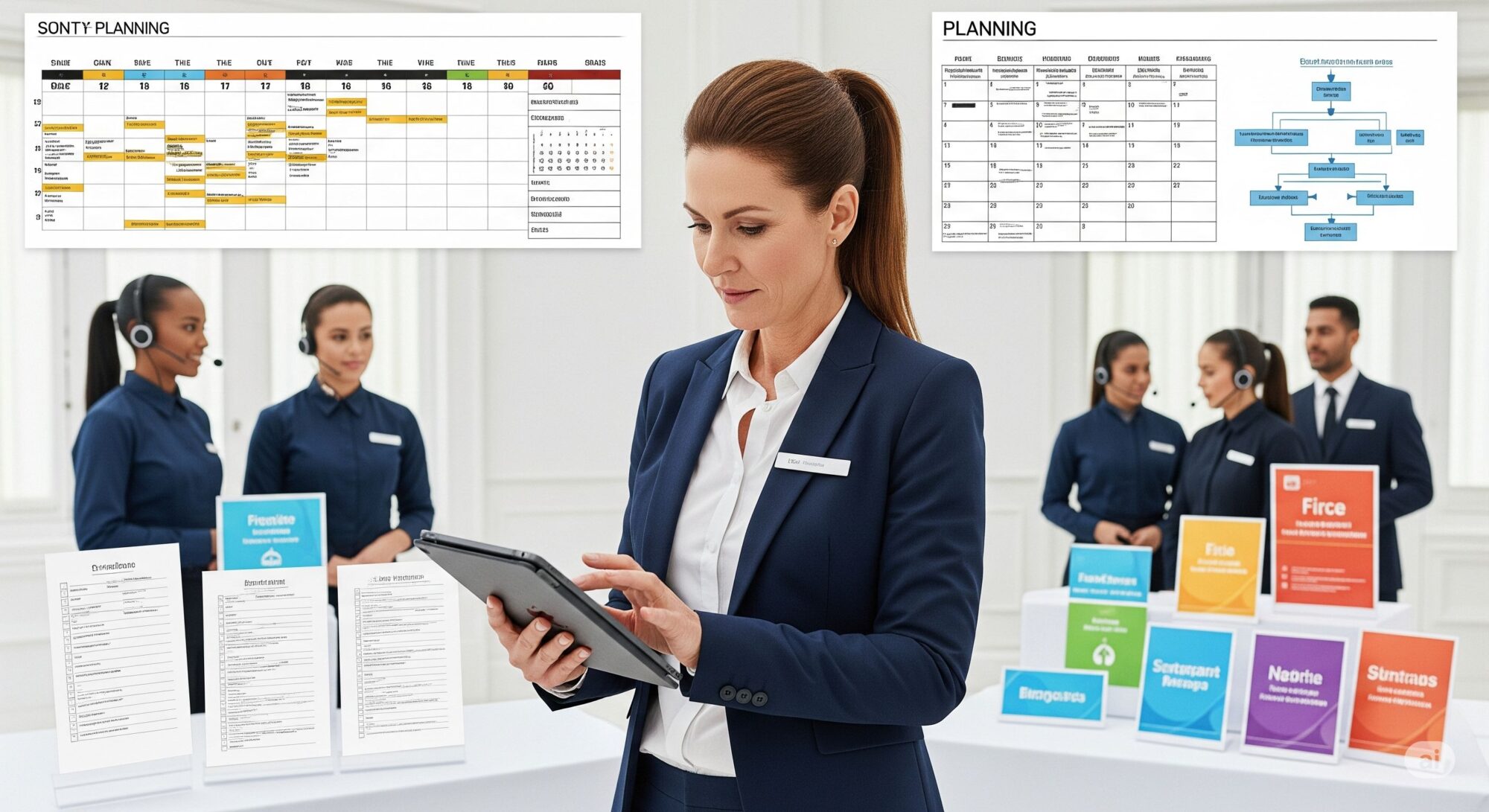Event operations often serve as the backbone of successful experiences, yet they rarely receive the spotlight. While flashy elements grab attention, it’s event operations management that ensures everything runs smoothly behind the scenes.
It doesn’t matter if you’re putting on a huge conference that lasts for days or just a small get-together for networking. You have to be prepared and organized, know how to get things done, and have the right tech in place to keep all the different parts working together. When event operations fail, the results are clearly visible, and these are long registration lines, venue confusion, delayed sessions, and dissatisfied attendees.
In this blog, we will explore the best practices to optimize event operation and also to help event professionals in their event management operations from the ground up.
Understanding the Foundation of Event Operations
Event operations is an umbrella term that includes everything from vendor deliveries to coordinating staff, managing security, overseeing check-ins, and responding to the unexpected in real time. The truth is, every event venue has its own set of challenges, and the crowd behaviour cannot be predicted, so it’s important to be prepared for any scenario.
In this dynamic environment, planning alone doesn’t cut it. The structure and the foundation should be flexible while using an operations system.
Let’s break down what event management operations demand in today’s landscape.
Define Operational Objectives Early
Without clear objectives, you will be stuck trying to put together an event. It would feel like trying to assemble a machine without the instruction manual. Deciding your goals upfront, with planning, timelines, and team roles defined from the start, sets everything that might come up. Key objectives might include:
- Delivering onsite event registration in under minutes for each guest.
- Ensuring tech support for all sessions
- Coordinating and scheduling to avoid any bottlenecks.
- Timely management of access for attendees and staff
- Clarity builds confidence. And confident teams run better events.
Use Smart and Scalable Event Technology Services
Technology no longer serves as a “nice-to-have” in event operations; it’s now the operational must-have. Essential uses of event technology services include:
- Real-time event dashboards
- Digital signage and content automation
- AI-driven networking suggestions for attendees
- RFID integrations for crowd management and analysis.
Effective communication, clear contracts, and regular check-ins with all attendees are non-negotiable, and this is all made possible through event tech.
Build Communication Protocols
Even a perfectly planned operation can fall apart without good internal communication. Team members running around asking each other who’s responsible for what? Chaos. Instead, establish a tiered communication structure:
Level 1: Immediate Ops Team (onsite issues, tech problems, crowd movement)
Level 2: Logistics Support (transport delays, vendor emergencies)
Level 3: Executive POC (VIP concerns, client interactions, legal/press contacts)
Use encrypted messaging tools like Slack channels, walkie-talkie apps, and live-feed dashboards. And assign channel moderators, because unread messages don’t resolve problems.
Design a Venue Operations Management Plan
A well-managed venue contributes significantly to a smooth, enjoyable, and safe experience for everyone involved. Consider the flow of people: how will attendees move from registration to sessions, to breaks, and back again? Are there clear directional signs? Is the lighting adequate?
Venue-related complications often blow up, and a quick response often relies entirely on knowing the area before anyone walks through the doors.
Onsite Event Registration from Arrival to Access
First impressions are crucial. It’s annoying for people at events to wait in long lines, only to get name tags with typos. A smooth and quick onsite event registration process not only saves time, but also shows you’re organized, keeps people satisfied, and helps the event run smoothly.
Here’s what works:
Pre-event QR codes sent to each attendee with designated check-in zones.
On-demand badge printing to accommodate last-minute arrivals or updates.
Clear signage at arrival points to avoid bottlenecks.
Hands-free check-in kiosks or NFC scanning solutions.
Don’t underestimate the impact of that first interaction between a guest and your team. It often sets the tone for the entire day.
Train, Don’t Just Instruct
Briefing is not the same as training. An instruction sheet won’t stand up to real-time chaos.
Effective event management requires staff who are not only aware of their duties but also prepared to adapt. Untrained staff can easily get tripped up by unexpected issues. Instead, try these training tips
– Walk through common scenarios like dealing with lost guests, tech faults, and emergency alerts.
– Match junior team members with experienced leads for guidance.
– Check in with staff regularly during event week.
This approach will enable smooth decision-making, as teams will know what to expect and how to handle situations calmly.
Prioritize Debriefing and Documentation
Events come to a close, but the learning never should. Many organizers just move on without seeing how their event went. After the event, ask key questions, write down the answers, sort them by team, and put these lessons in your guide.. Without this, the same mistakes get repeated every time. This data is invaluable for understanding what worked, what didn’t, and how to improve future events.
Takeaway: The Power Behind the Curtain
Flawless events rarely “just happen.” Behind a seemingly effortless experience lies deeply strategic planning, adaptable thinking, and constant communication.
When you concentrate on event operations, you’re doing more than just making things run without problems. You’re actually building belief in your brand, getting better returns on your costs, and crafting experiences that people will remember fondly.
Think of it this way: every event is a chance to show your audience who you are and what you stand for. If the event is disorganized, chaotic, or just plain boring, that reflects poorly on your brand.
The goal is to move beyond simply running an event to orchestrating a seamless, engaging, and successful experience for every single participant. This commitment to event management operations is what differentiates an ordinary event from an extraordinary one.



